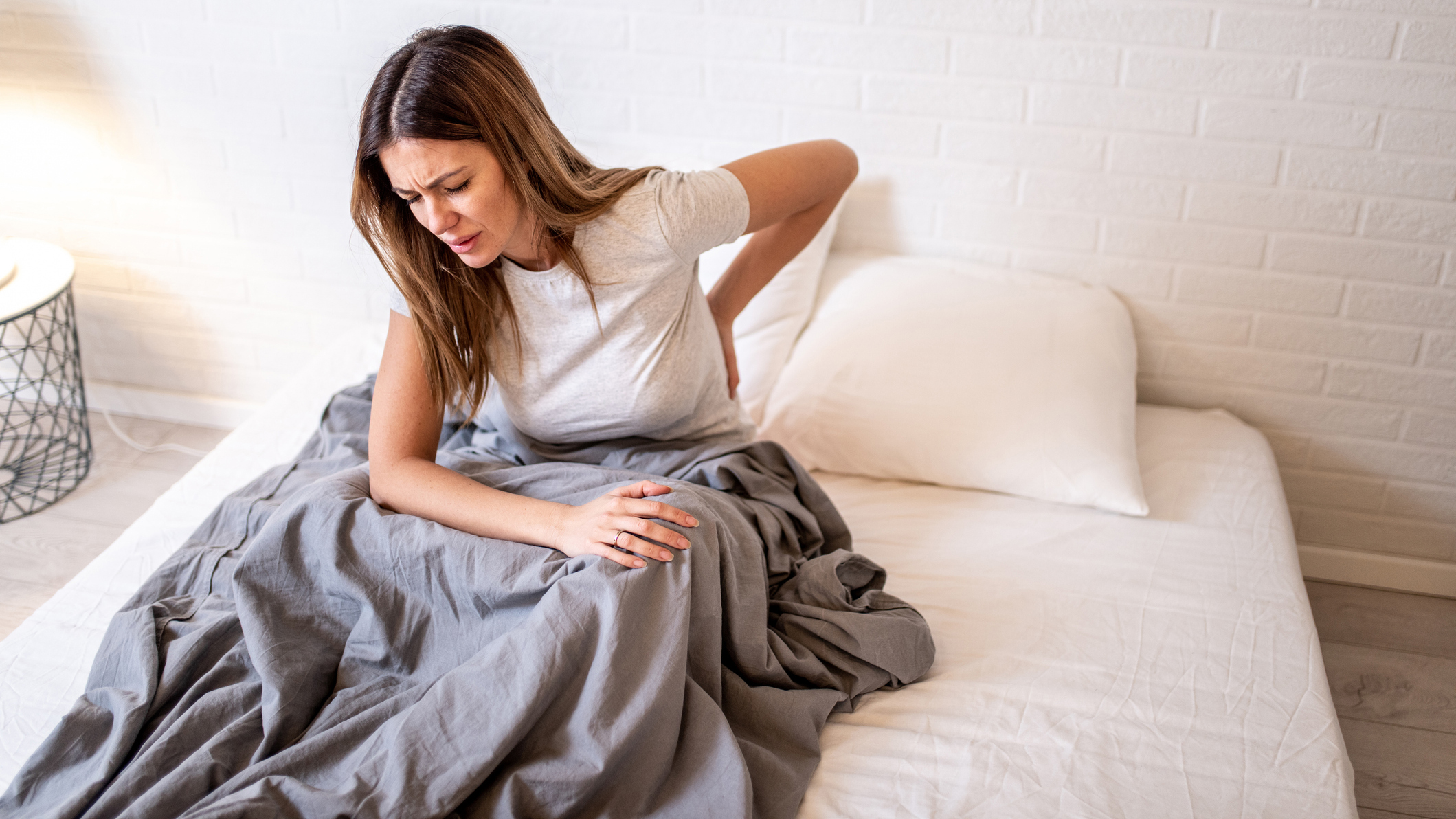
If you're waking up with back pain every morning, it's easy to speculate that your mattress or mattress topper is to blame. But do mattress toppers help with back pain or actually make it worse?
The best mattress toppers can help deliver the right type of comfort and support, but choosing the wrong topper could make your sleep space worse. After all, if you're sleeping on a topper all night only to start the morning with aches and pains, it is likely to do with your sleeping arrangement.
Here we'll look at whether mattress toppers help with back pain or if they cause it, along with whether it's time to buy a new bed topper in this month's mattress sales.
Do mattress toppers help with back pain?
We know from testing the best mattresses of the year that the right level of support for your body type is essential to helping you feel comfortable enough to sleep well. While the wrong mattress topper can cause discomfort, the right mattress topper can actually prolong your mattress's life and prevent you from developing back pain.
For example, if your mattress topper is too soft and it's leading to a lack of back support, a medium-firm or firm mattress topper can help to keep your spine properly aligned. Also, a topper can cover any sagging in an older mattress, working as a stopgap so your hips won't sink into the dip.
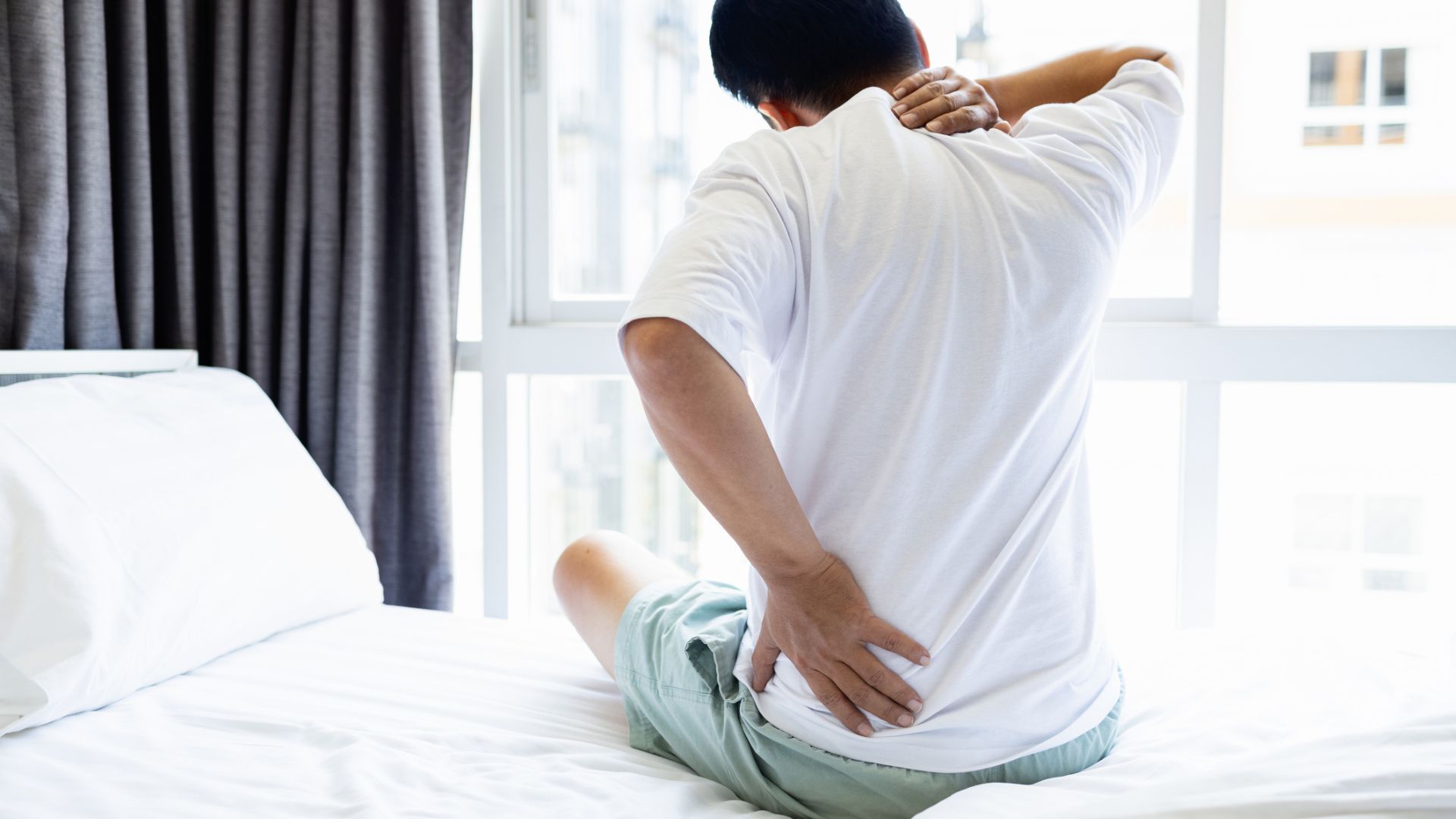
Can a mattress topper cause back pain?
The short answer is yes, and even top-quality mattress toppers can cause you some discomfort in the lower back if you've chosen the wrong one. It's often not because the mattress topper is of poor quality, it's often due to its firmness level. A mattress topper that is too soft can lead to hips sinking, and in turn the spine misaligning, which leads to lower back pain.
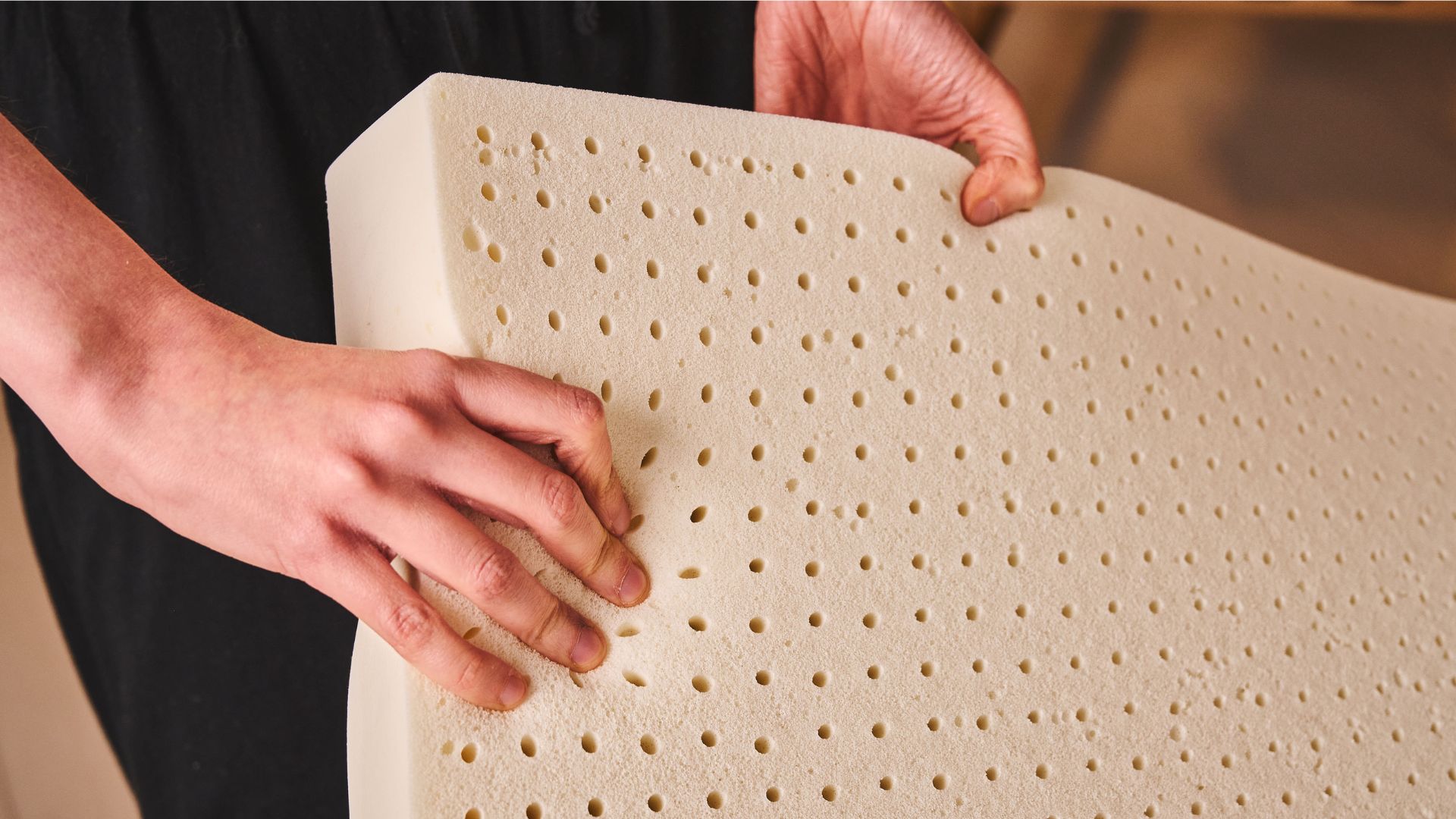
James Crow, a sleep posture expert recently told Tom's Guide that knowing how to sleep better with back pain comes down to how hard or soft your mattress or mattress topper is. "Medium-firm mattresses are generally better for back pain than soft mattresses, which can lack support, or hard mattresses, which can be too unforgiving," he says.
While a lot of toppers are designed to add softness to your bed, this can exacerbate back pain among back and front sleepers, as it causes the hips to sink into the topper's surface and misalign the spine. Instead, go for a medium-firm or firm topper for extra support.
3 signs your mattress topper is causing back pain
1. Your bed topper is over two years old
If your wondering how long mattress toppers last, the answer is that it's not as long as you think. If your mattress topper is feather or down then it could need replacing after just one year, while even the best memory foam mattress toppers can reach the end after two years.
“It’s important to make sure to replace your mattress topper every one to two years, to help your mattress last longer,” says Lydia Lloyd, M&S Home's homeware textiles designer.
While wool or latex toppers last a little longer (five to ten years), the truth is toppers aren't supposed to be a long-term solution. Mattress toppers can start to sag and show signs of wear and tear early, which can leave your body unsupported and prone to misalignment and lower back pain.
2. You back pain is worse in the morning
If you go to bed feeling fine, but wake up in the morning with back pain and aches, it's likely that your sleep surface is to blame. While back pain can arise from an injury or a daytime activity, back pain that's intense in the morning and fades throughout the day can usually blamed on a topper that is too soft to support your back or hip region.
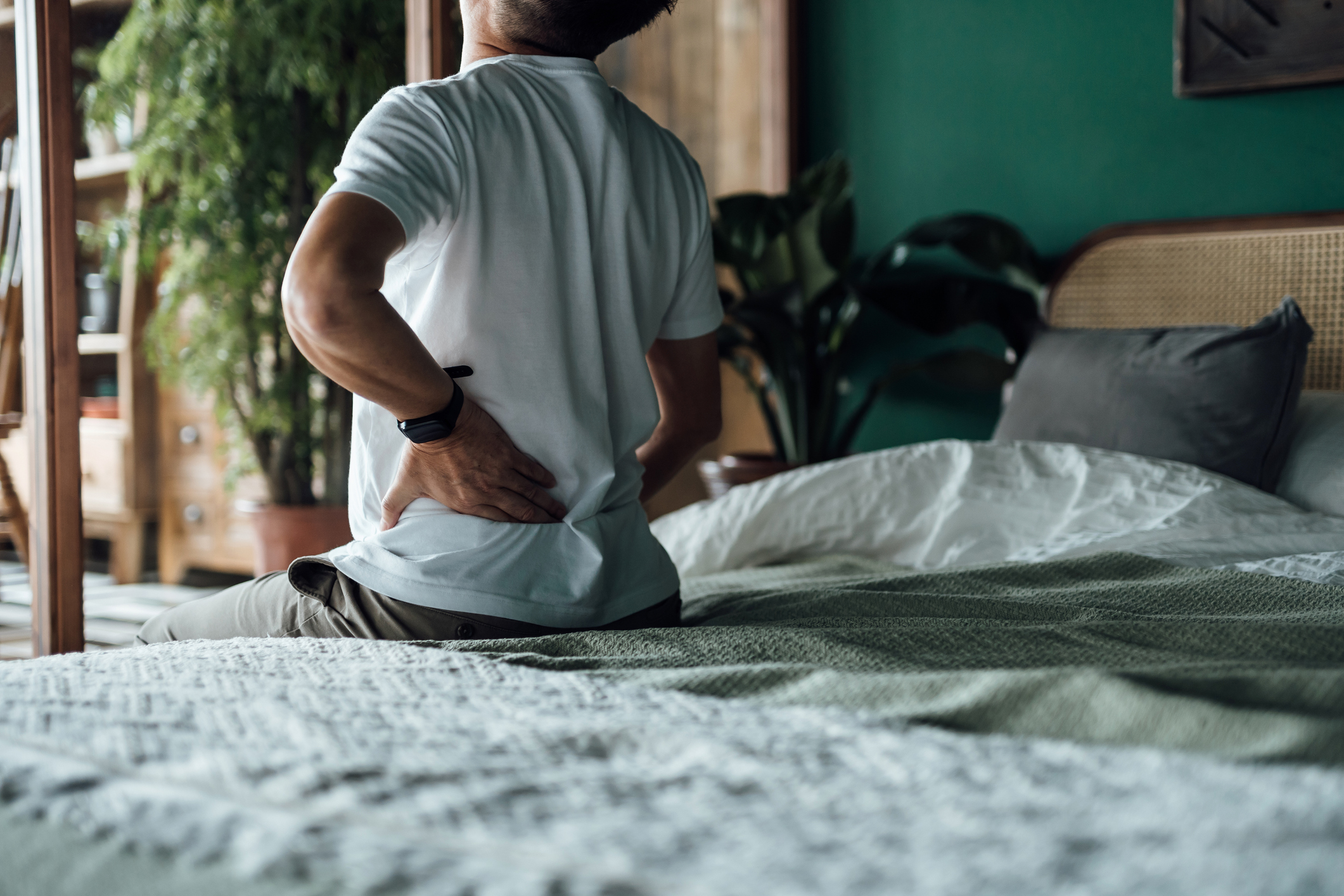
3. You can't get comfortable at night
The majority of mattress toppers are made from memory foam, as it can add plush pressure relief and body-contouring comfort to firm mattresses. However, not everyone likes the hug of memory foam, and back sleepers and stomach sleepers may feel enveloped or even trapped by the sink-in softness. If this is the case it's likely that your back, hips and spine is unsupported, which can lead to back pain.
How to choose a mattress topper for back pain
Trying to sleep with back pain is one of the hardest things Claire Davies, Senior Sleep Editor and Certified Sleep Coach, has had to do. Davies developed lower back and hip pain during the third trimester of her pregnancy and said it hugely derailed her sleep. "I was in agony within around 20 minutes of lying down, so as you can imagine my chances of feeling comfortable enough to fall asleep were pretty slim."
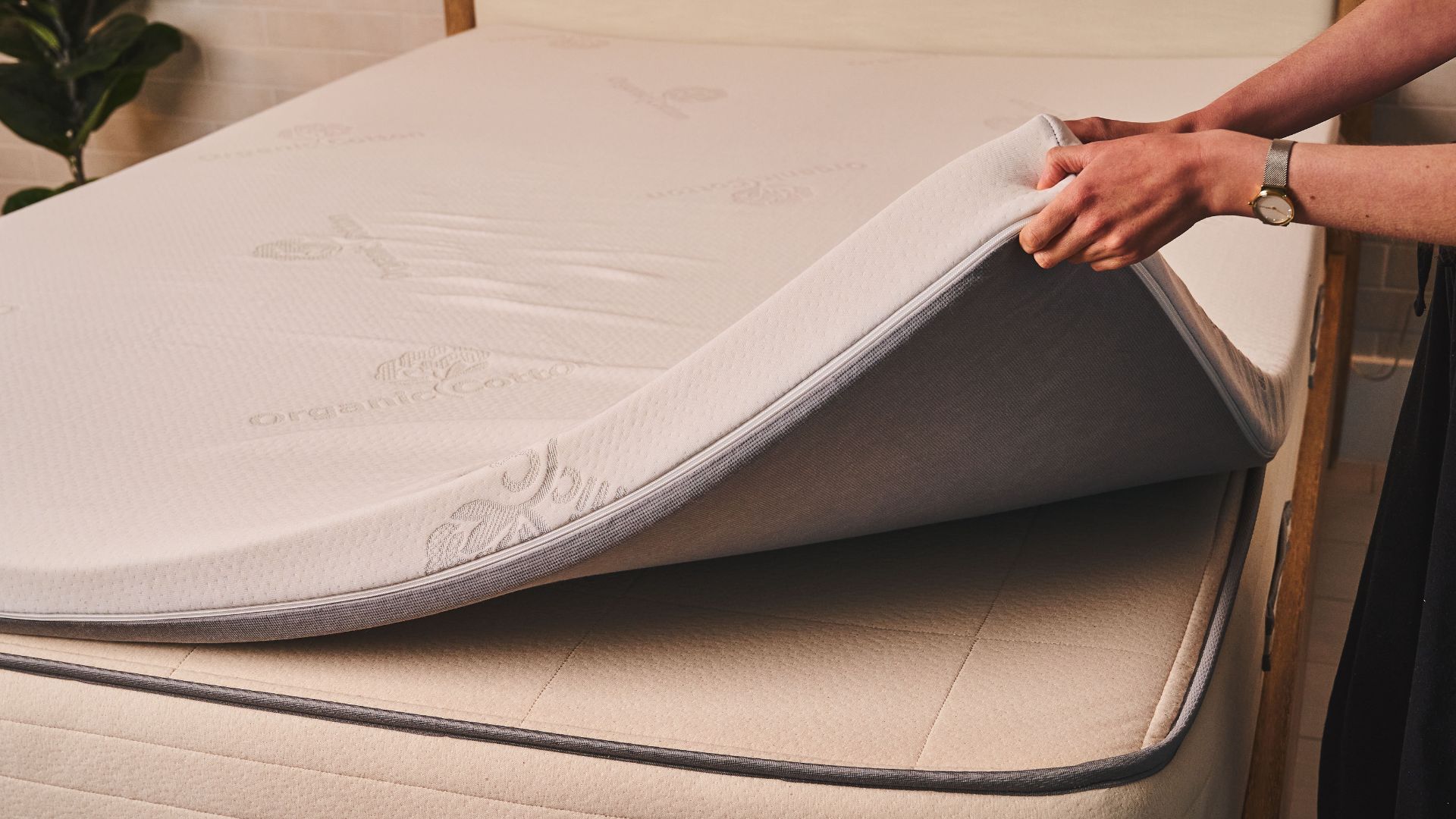
According to Davies, combining a pressure relieving mattress topper with a cooling hybrid mattress was her solution to reducing back and hip pain during sleep. "I remember at the time I was testing an Eve hybrid mattress, and it suddenly felt too firm and unforgiving around my hips and back.
"So I decided to pair it with the Tempur-Pedic Tempur-Adapt mattress topper (from $191 at Tempur-Pedic) and it turned out to be the best decision I made for my sleep at that time."
If you want to know how to choose a mattress topper, consider the following when shopping for a bed topper to ease back pain: :
- Firmness – If your mattress is too soft to support your back properly, causing it to dip and your spine to not stay properly aligned, pick a firmer topper to add the support you are missing.
- Suppleness – You can have a supportive topper while still enjoying some contouring and suppleness, which is essential to avoid feeling as though you're sleeping on a log.
- Ease of movement – Back pain will cause you to move around a bit in bed, so you need a topper that supports that instead of making you feel like you're wedged in the material.
Ultimately, if after a few weeks you're still waking up with a back pain, then you may need to increase or decrease the firmness of your topper. We'd also recommend speaking with your doctor to rule out any other causes.
Looking to replace your entire bed? Our guide to the three features to look for in a mattress for back and hip pain can help you make the right choice, with all the support and comfort you need.







